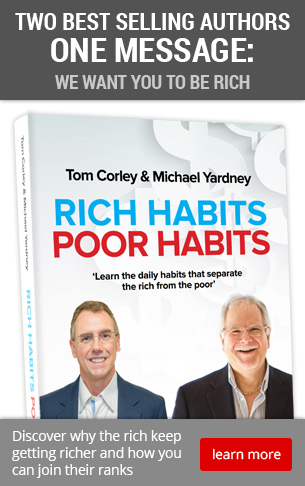
Ninety-five percent of the self-made millionaires in my Rich Habits Study said they made a habit of telling the truth. It was a habit they forged because they learned, the hard way, that spinning the truth ultimately cost them money.
Lying, even just once, can destroy a relationship in a moment. Think about that. You invest years in building a relationship with someone important and then, because of a lie, you send all of that investment in that relationship down the toilet. What a waste of time.
Telling the truth is a Rich Habit that must be forged on a daily basis. Those who lie, do not build long-lasting relationships with individuals who can open doors for you – success-minded individuals. Success-minded individuals don’t tolerate liars. They toss them away, like yesterday’s trash. Once you lose their trust, you lose the relationship. Along with that lost trust, is lost money, as they take their business and their relationship elsewhere.
When you lie to someone, you open yourself up to unexpected consequences. The individual you lied to will almost always share their distrust of you with others. Lying creates a domino effect of negative consequences that makes success almost impossible.
Sometimes telling the truth can be painful. As a rule, most individuals would rather avoid confrontation. And sometimes telling the truth can result in confrontation. But it is better to deal with the discomfort of telling the truth then in dealing with the ramifications of telling a lie. Lies almost always come back to bite you when you least expect it.
Better to tell a hard truth than an easy lie.
















